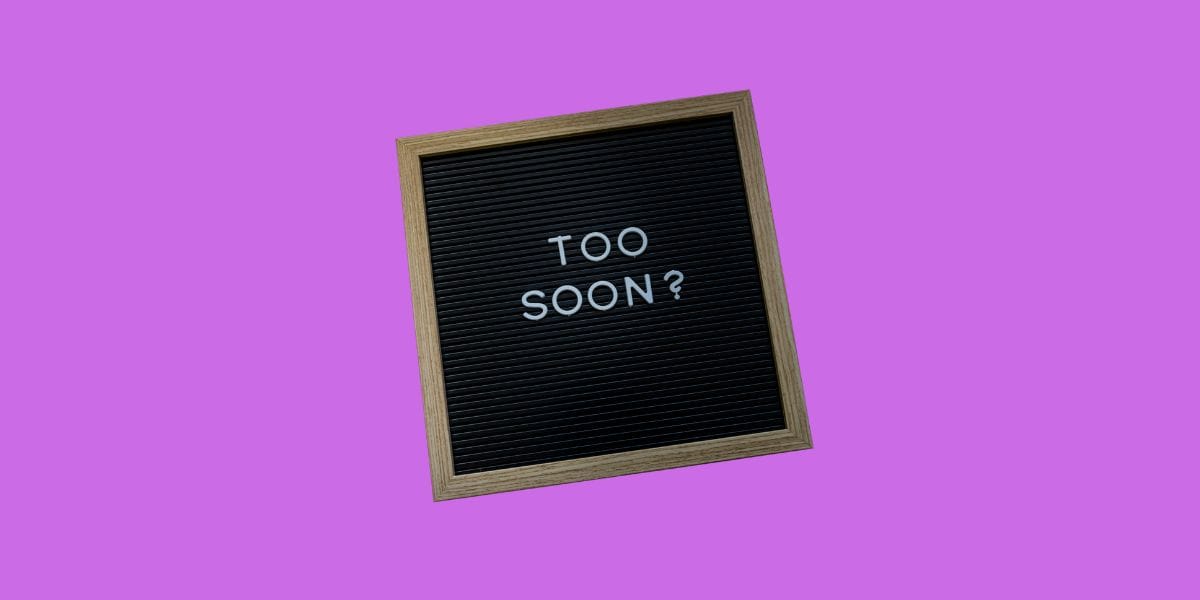Saving for your first home?
The First Home Super Saver scheme lets you boost your first home deposit by allowing you to withdraw eligible super contributions from your super fund.
It could be for you if:
- You’re a member of a super fund.
- You’re saving for your first home deposit for a home you intend to live in.
- You want to pay less tax to potentially get there faster.
First things first.
Raise your hand if you’ve been personally victimised by the housing market.
If you want to buy your own place to live in, unless you can afford to buy it outright, you generally need to save a home deposit.
This deposit usually needs to be about 5% to 20% of the purchase price of the property you intend to buy.
Generally, once you’ve saved this amount, and have found a place you want to live in, you find a bank who’ll lend you the rest of the money. The full amount gets transferred to the current owner, who then gives you the keys, and you can finally paint your own walls while spending the next several decades paying the bank back. The amount you owe is called your mortgage.
I need how much?
Saving a house deposit can feel impossible and some people give up on the dream completely.
But if the dream is still alive in you, there’s a way you can save your deposit more quickly and it involves your super fund.
Let’s talk about super for a second
The aim of the game is to retire like a fat cat.
For most employed Australians, your super fund is like a compulsory investment portfolio that helps you do just that.
If you have an employer, they have to send at least 10.5% of what they pay you to your super fund instead of your bank account. This is called the Super Guarantee.
Your super fund invests this money on your behalf in a range of assets that can include stocks, bonds, cash and property.
You get to choose how aggressively your super is invested (and the corresponding risk it takes on): your options usually range from conservative to high-growth.
Ultimately, if super is being saved on your behalf, you want it to be growing as much as it can so that when you get access to it, you have as much money as possible.
At Spaceship we always nerd out about ‘time in the market’ and dollar-cost averaging – your super takes advantage of this.
What is the First Home Super Saver scheme?
If you’re eligible, you can use the First Home Super Saver scheme (hereby known as the FHSS) to save some of your deposit inside your super fund instead of in a bank account.
There are a few benefits to doing this – and some risks – but arguably the biggest benefit is that you can save on tax.
Then, you can add the money you’ve saved on tax to your total home deposit savings and reach your target sooner.
How do you save on tax?
The Government wants you to retire richer so it incentivises voluntary super payments. These are optional extra contributions you can make to your super fund.
Two big reasons why people pay extra money to their super are;
- They want to retire wealthy; and
- They want to pay less tax.
Voluntary before tax contributions added to your super account, and any investment earnings on your super balance are generally taxed at 15%.
Your other income is generally taxed at your marginal rate, which can be as high as 45% if you’re a high roller.
So if you park your money in your super fund, to a point, you could pay less tax overall. Keep in mind, you usually can’t withdraw your super before retirement or unless something terrible happens to you, so this is usually a long-term play for people who do it.
There are annual limits to the amount of extra contributions you can make before you have to pay more tax but this is the general idea.
Great. Fantastic. That’s all well and good. We want to be stable in retirement.
But we want affordable housing now. Just let us stop renting. Please.
If you’re a first home saver, you can withdraw up to $50,000 worth of eligible voluntary contributions from your super fund to put toward your first home deposit.
Depending on how you make them, these voluntary super contributions could be taxed at 15% instead of your marginal rate, so you could save thousands in tax and put it toward your deposit.
It won’t get you the whole way there, and it’ll take some time (in addition to the $50,000 limit, the amount you can generally withdraw cannot include more than $15,000 of eligible contributions for any one financial year), but every dollar helps when house prices are outrageous and not showing any signs of slowing.
You’ll also receive an amount of earnings that relate to those contributions.
Should you do it?
First you have to find out if you’re eligible. Then, assuming you are, you have to figure out what works for you.
The thing about financial decisions is that they’re different for everyone. We can’t tell you what to do: we can just give you a starting point for further research, which could involve talking to financial professionals who know your personal details (such as accountants and financial planners).
The FHSS has some serious benefits:
- It keeps your money quarantined and stops you spending it on other things (you’re generally only allowed to withdraw your eligible contributions once when you’re ready to buy your first home).
- You can save thousands of dollars in tax by saving for your deposit inside super rather than outside it.
On the other hand:
- Your tax savings will depend on your personal situation, such as your income and how you choose to make voluntary contributions.
- If you need access to the money for a different reason, you probably won’t be able to get it.
- It can limit the type of property you’re able to buy (you can’t use it for an investment property or to buy a houseboat or caravan to live in).
- It may not be the fastest way to grow your money.
- There’s always a chance the government will change the rules around the scheme.
- If you change your mind about wanting to buy a home, you probably won’t be able to access your money again until retirement.
- If you withdraw your money but change your mind about buying a home, you’ll have to put it back in your super (after you’ve paid tax on it), or keep it and pay 20% tax on it.
Now that we’re a little clearer on the basics, let’s get to the nitty-gritty.
What else is there to know?
There’s a fair bit to know about the First Home Super Saver scheme. Your best bet is to seek out a finance professional who can give you personal advice. For more info, you can check out:
Are you eligible for the First Home Super Saver scheme?
How can the First Home Super Saver save you money?
How can you withdraw your super to buy your first home?
And visit the ATO.
The information in this article is prepared by Spaceship Capital Limited (ABN 67 621 011 649, AFSL 501605). It is general in nature as it has been prepared without taking account of your objectives, financial situation or needs. Before making any decisions in relation to the First Home Super Saver scheme based on the information in this article you should consider whether the information is appropriate having regard to your objectives, financial situation and needs.



